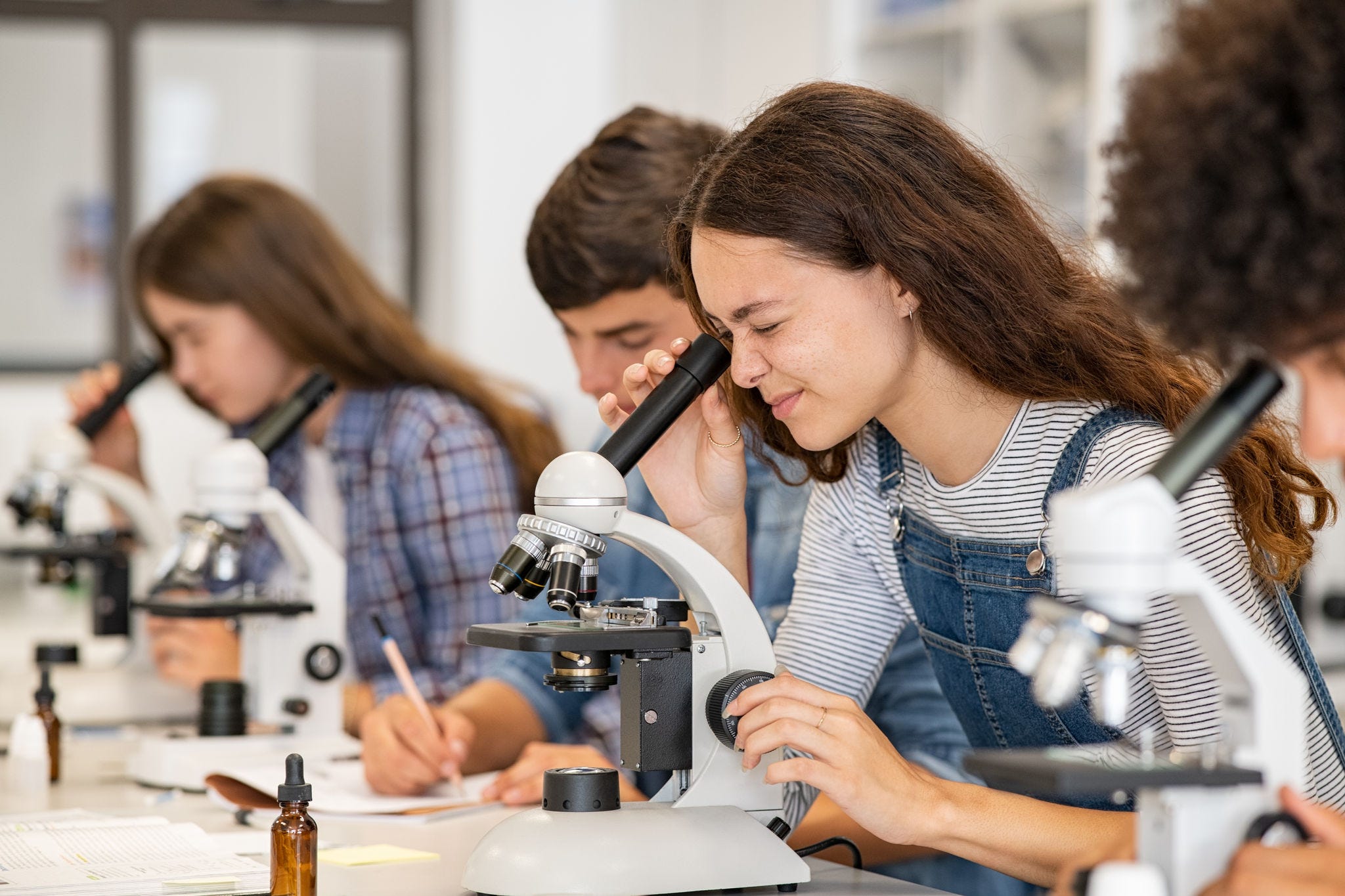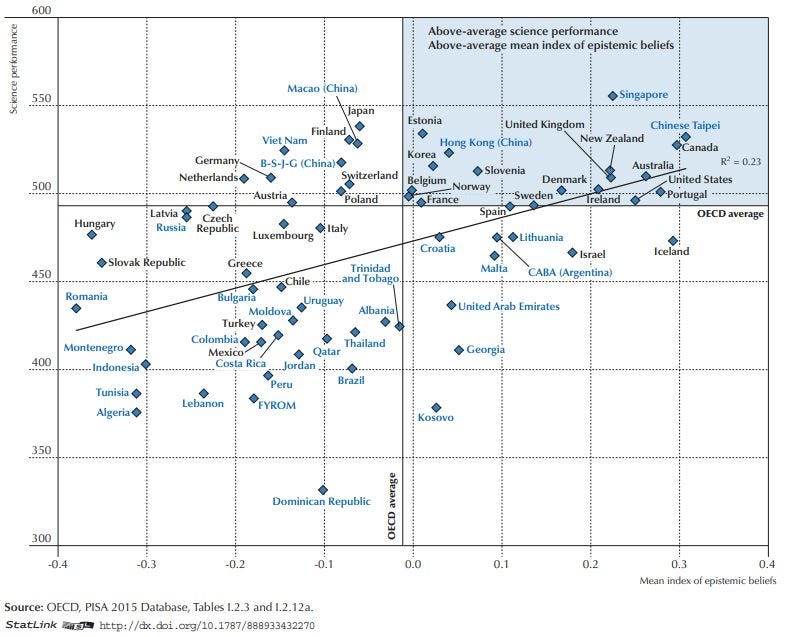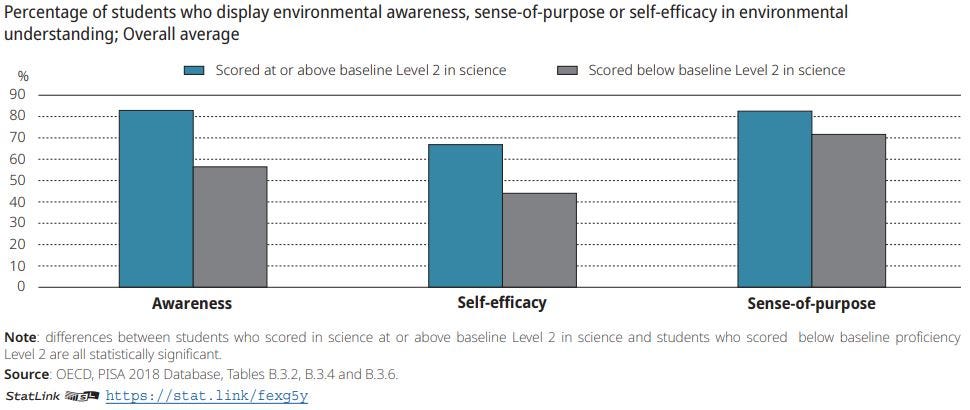In PISA 2022, the mean score in science among OECD countries is 485 points. The highest-performing education system is Singapore, followed by Japan, Macao (China), Chinese Taipei, Korea, Estonia, Hong Kong (China), Canada and Finland. Another 15 education systems also performed above the OECD average, ranging from Australia (mean score of 507 points) to Belgium (mean score of 491 points). The gap in performance between the highest- and lowest-performing countries is 137 score points among OECD countries and 214 points among all education systems that took part in PISA 2022.
Science literacy
Science literacy involves actively participating in informed discussions about science, sustainability and technology to guide decision-making and action. This requires the ability to explain phenomena scientifically, design and assess scientific enquiry, and research and interpret data and evidence critically.

Key messages
PISA 2022 results show that 76% of students scored at proficiency Level 2 or above on average across OECD countries. At a minimum, these students demonstrate basic or everyday scientific knowledge, and a basic understanding of scientific enquiry, which they can apply mostly in familiar contexts. Some 7% of students attained the highest proficiency levels, Level 5 or 6, across OECD countries. These students can apply abstract scientific ideas or concepts to explain complex phenomena, demonstrate more sophisticated epistemic knowledge, and evaluate scientific methods.
According to the PISA 2022 results, socio-economically disadvantaged students are more than five times more likely than advantaged students to score below the baseline level of proficiency in science (Level 2) across OECD countries. The performance difference between boys and girls is not significant across OECD countries.
Context
The association between science performance and students’ belief in scientific approaches to enquiry
PISA 2015 results show that stronger agreement about the tentative, evolving and cumulative nature of scientific knowledge, and stronger support for empirical approaches to scientific enquiry is associated with higher performance, on average across OECD countries.
System-level association between science performance and students’ belief in scientific approaches to enquiry (2015)

Environmental attitudes and science performance
PISA 2015 results show that, on average across education systems, environmental attitudes are more prevalent among students who performed at or above baseline proficiency in science (Level 2) than those who did not.
Environmental attitudes, by proficiency level in science

Related publications
Programmes and projects
-
PISA is the OECD's Programme for International Student Assessment. PISA measures 15-year-olds’ ability to use their reading, mathematics and science knowledge and skills to meet real-life challenges.Learn more
-
The Education Policy Outlook is an analytical observatory that monitors the evolution of policy priorities and policy developments from early childhood education to adult education, mainly among OECD education systems, to provide a comparative understanding of how policies are evolving, and how they can be best implemented or improved over time.Learn more
-
The OECD’s programme on education and skills policy support policymakers in their efforts to achieve high-quality lifelong learning, which in turn contributes to personal development, sustainable economic growth, and social cohesion.Learn more
-
OECD Future of Education and Skills 2030 aims to build a common understanding of the knowledge, skills, attitudes and values students need in the 21st century.Learn more
-
The PISA-based Test for Schools provides school-level estimates of performance and information about the learning environment and students’ attitudes gathered from student questionnaires. Find out more and how schools and their networks can take part.Learn more
-
TALIS - the Teaching and Learning International Survey - is the world's largest international survey about teachers and school leaders.Learn more






